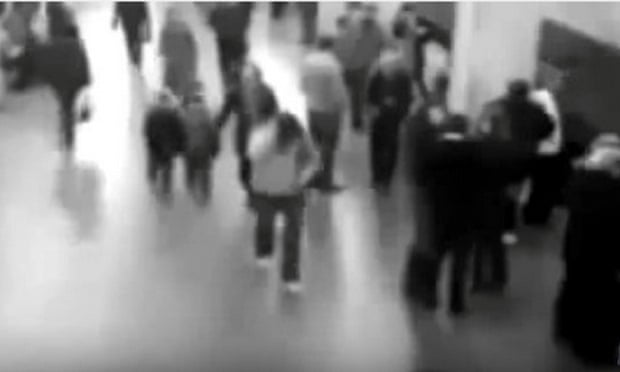
Summary:
Within a couple of hours of news breaking of Tuesday’s attacks in Brussels, video emerged on YouTube that was claimed to be from CCTV showing an explosion at the city’s Zaventem airport. The footage rapidly spread across social media, and was reported by at least one major national news site. It was followed by further footage supposedly showing an explosion at the Maelbeek metro station near the European Parliament, and another video claiming to be from the airport. However, none of the footage was what it was claimed to be. They were all recordings from 2011, two from an attack on Moscow’s Domodedovo airport, one from a bombing of a metro station in Minsk, the capital of Belarus. The grainy CCTV clips were turned from colour to black and white, flipped horizontally, relabelled and posted as if they had emerged fresh from the day’s events. The misleading videos are examples of a phenomenon that is becoming increasingly common during almost every major news story featuring violent, fast-moving events. False or misleading reports spread rapidly across social media and are picked up by reputable news organisations, further obscuring an already incredibly confusing picture.
Key data/statistical information:
- During the Paris attacks last November pictures circulated claiming to be from the scene which were in fact from the Charlie Hebdo shootings the previous January. Images from 2 days earlier at a show in Dublin by the Eagles of Death Metal, who were playing when militants attacked the Bataclan Theatre where 89 people were killed, were shared claiming to be from that night’s gig.
- Alastair Reid, managing editor of 1st Draft, a coalition of organisations specialising in verifying information on social media that is backed by Google, said part of the problem is that anyone publishing on platforms such as Facebook has the ability to reach as large an audience as a news organisation.
What's my view?
One of the downsides of the increase in new and digital media and the internet revolution is that some information on-line will be inaccurate besides unreliable. People are trying to find different ways to troll or to reach a large audience which is possible through social media.
No comments:
Post a Comment